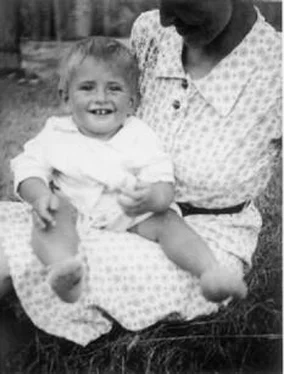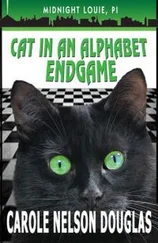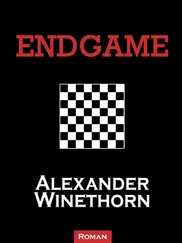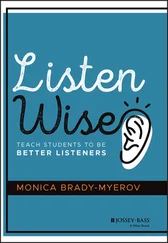When he was finished with that day’s pursuit of books, he returned to South Pasadena in the early evening for a workout at the gym, forty-five minutes of swimming, and then a sauna; by nightfall he was back at Mockingbird Lane, settling into his world of reading, and studying chess: peace . Unless a friend was visiting, he rarely went out at night, enjoying the comfort and safety of his home.
The apartment was strewn with books, magazines, and piles of clothing and had the smell of fresh oranges: Bobby would buy them and other fruits and vegetables by the bagful. Every day, he’d drink one or two pint glasses of carrot juice, one right after the other. Dozens of bottles of vitamin pills, Indian herbal medicines, Mexican rattlesnake pills, lotions, and exotic teas were piled on tables and ledges everywhere, all to help keep him on what he believed was a strict, healthful diet—and to treat some ailments he had from time to time. Often he’d take his hand-cranked juicer to a restaurant with him, order breakfast, ask for an empty glass, and break out a half dozen oranges, cut them in half, and squeeze them at his table while customers and waiters looked on in either puzzlement or amusement. He began to put on bulk and muscle and he seemed to be in perfect physical shape.
He’d collected hundreds of chess magazines in five or six languages, and all genres of chess books, the majority of which were sent to him by his mother. Now living in Jena, East Germany, behind the Iron Curtain, where she was completing her medical degree, Regina could purchase the latest Soviet chess literature quite inexpensively, and she regularly made shipments to her son, either at random or by request. At one point Bobby had to tell her to stop sending chess books because he was running out of room.
Far into the night he’d play over the latest games by himself—from tournaments in places ranging from England to Latvia to Yugoslavia to Bulgaria—and he’d hiss and scream as he followed the moves. So loudly did he exclaim “Yes!”, “Absurd!”, “It’s the knight!”, or “Always the rook on that rank!” that his pronouncements could be heard on the quiet lane where he lived. Bobby’s outbursts would startle the infrequent passersby and sometimes produce complaints from neighbors.
By the late 1970s, Fischer hadn’t played a single game of chess in public since Iceland. He was continuing to study the game, but he spent more time exploring his theories on religion. At one point, he was spotted in a parking lot with an armful of anti-Semitic flyers that promulgated the superiority of the Aryan race. In between handing out the flyers to those who walked by, he placed his declarations on windshields. Gradually, his savings were evaporating, and other than biannual royalty checks from his books, Bobby Fischer Teaches Chess and My 60 Memorable Games —which netted him roughly $6,000 a year in total—he had no other source of income.
Either by choice or necessity, Bobby moved out of the Mokarow house and settled in Los Angeles, in a small, dingy, dark, and inexpensive furnished room on Orange Avenue, one block off Wilshire Boulevard. Within a short while, though, the rent for the room became too much of a financial burden to carry. So he wrote to his mother, who was living in Nicaragua doing pro bono medical work for the poor, to see if she could help out. She immediately instructed his sister, Joan, to send the entire amount of her monthly Social Security check to Bobby to assist him with his rent. Joan had been collecting Regina’s checks and then banking them for her so that she’d have a small nest egg when she returned to the United States. Bobby continued to accept the proceeds of his mother’s Social Security checks for years.
His settlement on Orange Avenue wasn’t permanent, however, and he eventually began renting in the skid row section of L.A. near MacArthur Park, taking rooms in what might be called flophouses, sometimes just for the night or by the week.
In time, judging from his uncombed and disheveled physical appearance, it was difficult to differentiate Bobby from the down-and-outers of the area. His ten $400 suits were in storage somewhere, but he just didn’t seem to care to dress well anymore. He stopped regularly working out, started developing a paunch, began dressing in whatever clothes he happened to have handy, rarely had his hair or beard cut professionally, and even had the fillings of his teeth removed.
This last piece of physical business has been so distorted by the press over the years that it has entered the “Bobby Fischer Urban Legend Storybook” as proof of his “insanity.” Somewhere he was quoted as saying that he’d had his fillings removed because he feared that the Soviets could affect his mind by sending harmful radio signals through the metal in his teeth—and virtually every profile and book written about Bobby since has mentioned it. Either the quote was spurious or misremembered, or Bobby was joshing the reporter who recorded it, because the truth is that he had the fillings removed for what he believed was a legitimate health reason. He was solicitous toward Ethel Collins about this, since she’d been suffering with a chronic gum problem for years.
Bobby believed that false teeth and metal fillings (especially silver) were detrimental to periodontal health because they irritated the gums. He was also convinced that mercury in most fillings has a toxic effect on the body.
Consequently, Bobby had all of his fillings removed by a dentist in a quick procedure (it only took a few minutes), and he recommended that Ethel do so too. He admitted that eating without fillings was “uncomfortable,” but it was better than the alternative of losing all of one’s teeth, which he predicted would happen if the fillings remained.
Years later in Iceland, he told his closest friend Gardar Sverrisson that the “radio signal” story about the fillings was bogus: The reason he’d had them removed was because he felt that fillings caused more problems than they cured.
The problem for Bobby became that, since his teeth no longer had fillings, they also no longer had any support and became more fragile. They were also open to decay, and therefore began to chip away. The result: over time he lost a number of teeth. Since he no longer believed in going to a dentist (nor could he afford it) for crowns, implants, or replacements, his broken and missing teeth added to his vagrant look.
Despite his cordial exchanges with the Collinses, and his attempt at proselytizing them into accepting his conspiracy theories, he hurt Jack Collins deeply when he refused to write the introduction to Jack’s book My Seven Chess Prodigies (1974). Jack had told him that if he would just write a short introduction, it would mean a sizable advance from the publisher. Collins needed the extra money; although not indigent, he was always short of income since he was living off Ethel’s salary as a part-time nurse. His request of Bobby was couched in cordial, nonpleading terms, but Bobby heartlessly never answered him, and Lombardy stepped in to do the job.
When Bobby became unbearably lonely for companionship, he would often head up north to Palo Alto and stay with his sister and her husband, Russell Targ, a Stanford University scientist who was an authority on extrasensory perception. Joan was Jewish, as were Russell and their three children, and after hearing Bobby’s rants time and again against Jews, the family asked their houseguest to leave.
Living not too far from his sister was Bobby’s friend, grandmaster Peter Biyiasas and his wife Ruth, so Bobby stayed there for weeks on end. Over a period of four months Fischer and Biyiasas played seventeen five-minute games and Bobby won them all, with Biyiasis claiming that he never got into an endgame once: Bobby would just wipe him off the board in short order every time.
Читать дальше


![Антон Текшин - EndGame [СИ]](/books/394477/anton-tekshin-endgame-si-thumb.webp)









